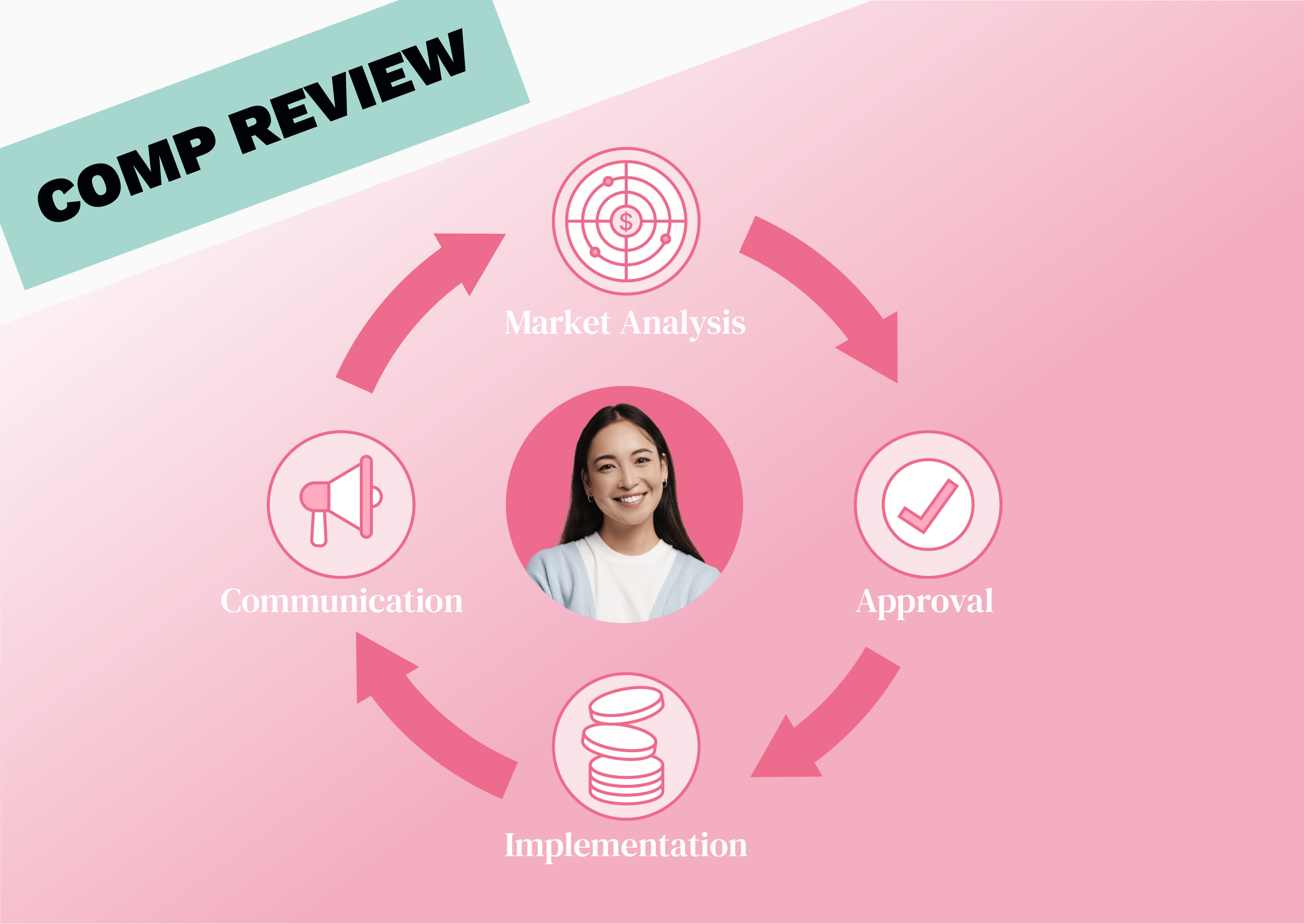Why use a compensation management software? Figures v. Glassdoor
In a competitive job market, retaining top talent is key. One way to achieve this is by boosting trust with your employees through open conversations about compensation. But those kinds of conversations are hard to achieve if your compensation strategy isn’t backed up by reliable data.
If you can’t provide rational answers when being challenged by the expectations of your candidates and employees — then you might find it difficult to hire or retain the top talent. As regulations around pay transparency like the EU pay transparency directive start to come into force, potential new hires and existing employees alike are demanding more from the companies they work for.
In addition to this challenge, as hiring freezes become more common, it’s also important to know what your competitors are offering — so that you can tailor your offers the right way.
To remain competitive in a crowded market, choosing the right data to back up your market compensation policy is key.
In this article, we’ll take a closer look at what makes salary data reliable, and where to find the most accurate, real-time market compensation data.
1. What makes salary data reliable?
Any market compensation philosophy needs to be backed up by reliable data. But what makes that data reliable in the first place? It comes down to:
- Accuracy
- Up-to-date
- Size of dataset
- Filterable (by industry, location, job level, and more)
2. How can using unreliable data be a mistake?
Unreliable data can put your company in jeopardy in multiple ways.
Offering well below current market rates (because the data you’ve used isn’t an accurate reflection of those rates) can mean you miss out on hiring the top talent — because they accepted a more realistic offer from a competitor.
Using unreliable data can also have the opposite effect — and your salaries might be so far above market rates that too much of your budget is taken up by salaries leaving too little for everything else.
Either way, without reliable data, it’s much harder to gain an edge over your competitors.
While it might be tempting for companies to rely on easily available salary data from sites like Glassdoor — there are a few reasons why this can be a mistake, including:
- Inaccuracies
- Out of date
- Unverified
- The small sample size for some locations or industries
Let’s take a closer look at the primary purpose of a site like Glassdoor.
Glassdoor: job review site or compensation management tool?
Launched in 2007, Glassdoor became the place for employees to post honest, anonymous reviews about the companies they worked for. These reviews stood out because they also allowed users to post their salary — something which employers historically haven’t made widely available.
While job seekers relied on Glassdoor to give them an honest insight into working conditions, companies also began to use the site as a market compensation tool to see what salaries their competition was offering. At first glance, this might seem like a good idea, but it can lead to some major inaccuracies.
The reason for these inaccuracies is that the salary reviews on Glassdoor are unverified. Users can submit any salary they choose, which means the results can be inaccurate — something that’s openly stated in the Terms of Use.
Glassdoor was never intended to be used as a market compensation tool, and relying on this potentially inaccurate data puts companies on the back foot.
How Reliable Are Glassdoor Salaries?
Since we're all about data at Figures, let's look straight at the numbers.
To do a fair benchmark to see how companies can lose our using Glassdoor compared to Figures, we dove into the salary of a Front-End Developer. And of course to be EXTRA fair, we looked at 3 levels: Junior, Intermediate, Senior in 3 locations: Paris, London, Berlin.
Drumroll please...
Here are the results of the anonymous, unverified data from Glassdoor salaries directly to data updated in real time by verified companies on Figures:
Salary comparison: Front-End Developer Junior (April 2023)
What can we see? Glassdoor data consistently has a lower salary average for the same position in different cities.
What does this lead to? Skilled entry level talent and growing talent not joining your company and going to your competitors.

Salary comparison: Front-End Developer Senior (April 2023)
What can we see? Glassdoor data is either too high or too low for the same position.
What does this lead to? Over-spending or poor budget forecasting.

How to pick the best salary research site?
Now that you've seen how unreliable data can lead to money wasted, you should be feeling ready to make data-driven compensation decisions. So, here's all about us at Figures -
As the most comprehensive compensation management software for Europe and the UK, here’s what Figures does differently:
- Filters: To make the best compensation decisions, you need to compare like for like. Our platform allows companies to filter by location, market, industry, job title, level, and much more.
- Trust: The companies that choose Figures, trust Figures. You can rely on our data because we have a five-star trust rating, based on the number of companies our sample size is built on. Your data is also safe with us, because we’re ISO 27001 certified, and comply with SOC2 and GDPR.
- Tailored: No matter whether you’re a start-up or an established brand, Figures provides the tailored data you need. That means you can create competitive offers by basing salaries on the specific percentile you’re aiming for.
- Global overview: Quickly see the salary status of all your employees to see whose salary aligns with the market value and whether any employees are above or below this.
- Real-time: With constantly changing market conditions and an unstable economic climate, real-time data helps you reinforce decisions with the most up-to-date information.
Ready for the best compensation management software?
Salaries are often a company's largest outgoing, accounting for up to 70% of your expenses. That means getting it wrong can cost you a significant amount of money, or mean you can’t secure the top talent because your salaries are too low.
That's why knowing what’s below market compensation —and what’s above it — is so important. And using reliable data from a proven market compensation tool is the best way to discover the information you need to know. Get a demo of our tool!
.avif)


.avif)

